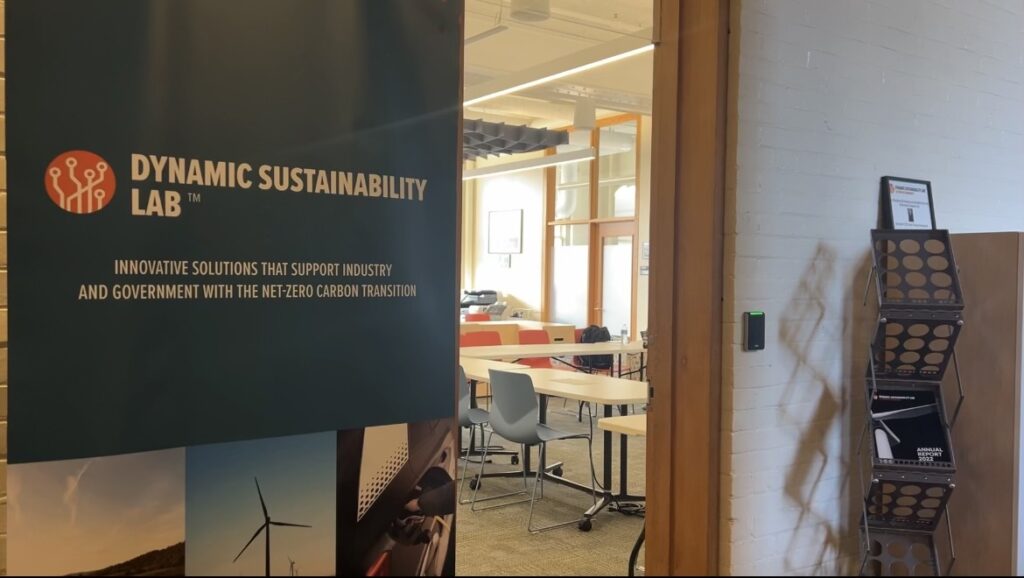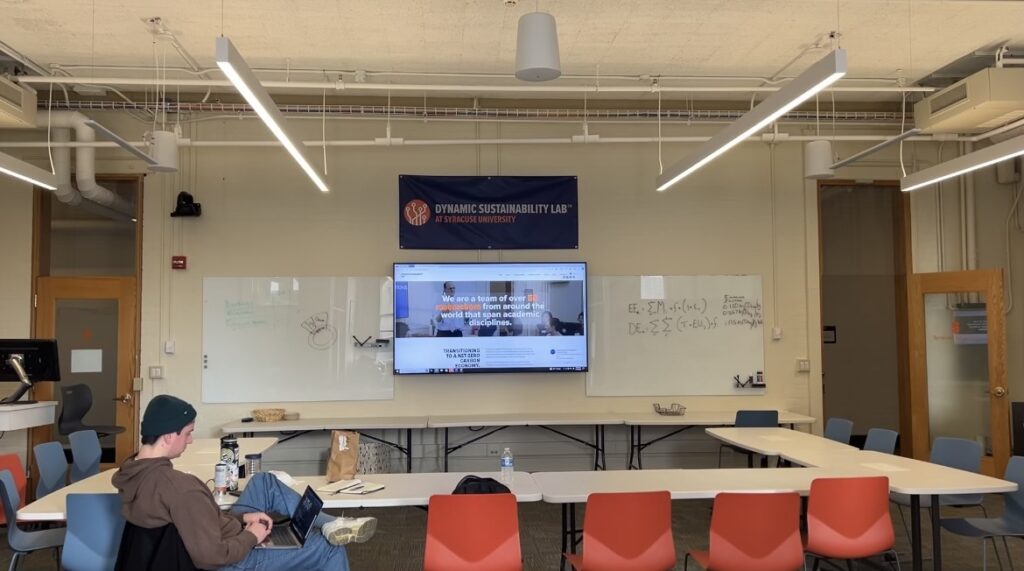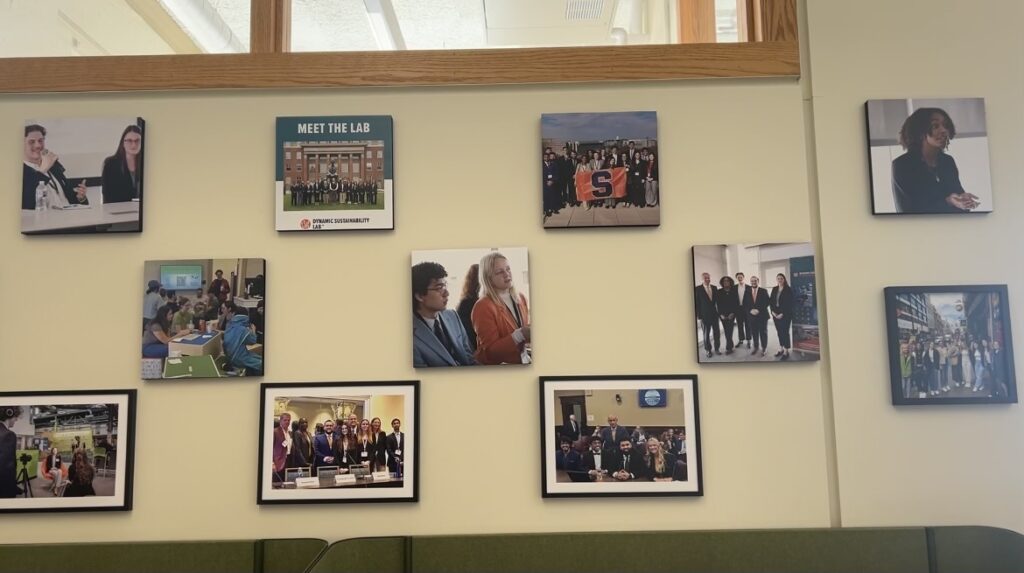Syracuse University’s Dynamic and Sustainability Lab brings students together to focus on research for what a transition to a net-zero carbon economy looks like.

SYRACUSE, N.Y. — The Dynamic Sustainability Lab’s research team is reimagining what a sustainable world is. Finding scientific information and data for governmental and industry clients around the world, the team serves as a new beacon of light for global environmental research.
“The only partisanship that we have is to provide really good information so smart people can make hopefully informed decisions,” Dr. Jay Golden, faculty director and founder of the DSL, said.
Created in 2021, the interdisciplinary lab examines the “risks and unintended consequences” that occur in transitioning into a net-zero carbon economy, meaning an economy that balances human carbon emissions with the amount removed from the atmosphere. Located in Steele Hall, Room 206, the DSL focuses on different kinds of projects from energy and technological transitions and nature-based solutions to institutional and policy matters.
The lab team is a group of 40-50 paid research fellows, undergraduate and graduate students from different disciplines across campus. The teams are split based on personal interests and career aspirations.

Every Friday, the team has a meeting to pitch ideas and share updates on projects . This allows students to practice communicating scientific topics that people may not know about, which prepares the fellows for future presentations to different boards or investors.
“Everyone has a different area of expertise. So being able to bounce ideas off of each other… that’s what the team meetings are really great at doing,” said Zoe Colman, a research fellow and junior studying Environment, Sustainability and Policy, Geography and Political Science.
Colman is a part of the USDA Smart Commodities team in the DSL and this is her first year on the team. She and her team are working on defining what a climate-smart commodity is for a scientific paper. With her passion for economic solutions, the team’s work could help outline what producers can do to develop climate-smart practices and adopt more sustainable farming practices.
“The biggest thing that I am looking forward to is the career opportunities in the future. I mean first of all the fact that right now Tyler, Dr. Golden, and I are talking about a scientific paper and getting something published, to me that’s really exciting. And that’s something that I probably wouldn’t have dreamed of for a few more years,” Colman said.

Not only has Golden created professional opportunities for students with research guidance and projects, but has also launched Sustainable Organizations and Policy, a new M.S. program that is a joint degree with Whitman School of Management and Maxwell School of Citizenship and Public Affairs. The degree combines the business world and sustainability. DSL research fellow and first-year graduate student Harrison Vogt is a part of the program.
“My passion is the environment. I want to be an environmental lawyer. To have a background in the policy and the business areas of this is, to me, I see is necessary to understand where environmental law is today,” Vogt said.
The future of the DSL is showcased in sending students to networking opportunities such as symposiums and conferences, but also annual reports are created every year to share recent findings. Currently working on their new 2024 report, the DSL will continue to conduct research that will help develop a more sustainable economy.
“We value the scholarship and research of students from all different backgrounds of all different academic disciplines because the issues we face for climate and sustainability are very difficult,” Golden said. “My hope is that the university as a whole takes on that kind of thought process and value and maybe even create something even larger.”
VIDEO TRANSCRIPT: SU’s Dynamic Sustainability Lab provides a new approach to research
Dr. Jay Golden: We are unique in many respects because we are a student-centric, student-focused research lab. So we have about 40-50 students, undergrad and grad, all paid research fellows through grants and other funding from almost every college on campus. So we really are an interdisciplinary research lab but what we focus on is the transition to a net-zero carbon economy. We kind of span the spectrum and all we do is work as teams. We have clients who are government and industry clients from around the world. We provide them with good science and data.
Harrison Vogt: For me, my favorite part about working here is definitely the fact that I am among my like-minded peers. And on top of it, they are not just like-minded but also extremely ambitious. They are also willing to challenge each other in order to get the specific research that they want as well as in a competitive environment and it helps me challenge myself to become better at my job and what I want to do in the future.
Golden: I think it’s really important that we really promote transdisciplinary research to say we value the scholarship and research of students from all different backgrounds of all different academic disciplines because the issues we face, climate and sustainability, are very difficult and require a very interdisciplinary approach to solve.
